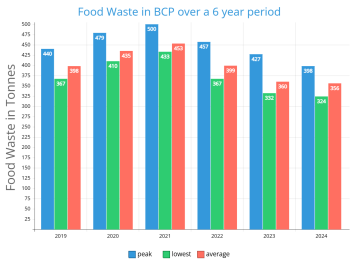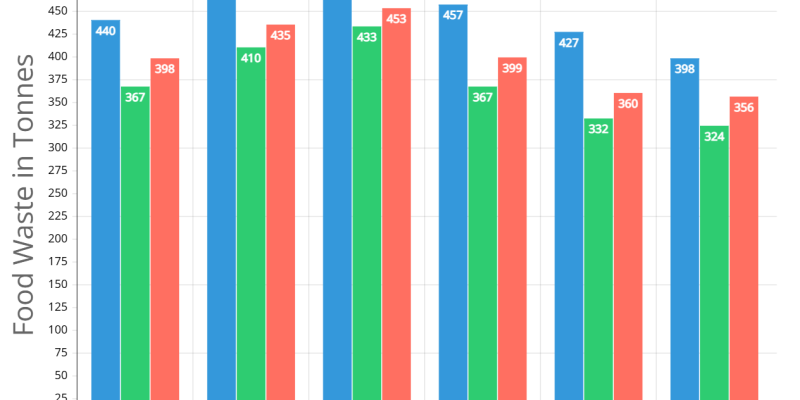Food wastage in the BCP area has been declining in numbers since 2019, according to recent figures, released by the BCP council.
In 2019, monthly food waste in the area showed a slow decline starting at 479.6 tonnes and plateauing at 386.01 by December of the same year.
The COVID-19 pandemic in 2020 saw a major spike, with the most notable spike being from march to July, reaching up to 449.32 tonnes of wastage.
From 2021 onwards, the area experienced a gradual reduction in food waste, with the lowest figure being 423 tonnes of waste, however having the highest peak at 500 tonnes.
By 2022, the monthly average for waste had fallen by 395 tonnes, with this downward trend accelerating in 2023 and 2024, with the lowest dataset being 324.4 tonnes in June of 2024.
However, several factors have an effect on the numbers, a major example being the change of seasons, with the winter months consistently producing higher numbers in wastage.
The number of food wastage begin a steady decline in 2022, with the monthly average peaking 399 tonnes, over 50 tonnes less than the prior year.

There are several factors behind the decline in numbers, with a major factor being improved household planning as well as the BCP council raising awareness of the environmental impact of food waste.
The biggest way the BCP council has attempted to fight the levels of food wastage, is investing in the love food hate waste campaign, as well as spreading tips on how to reduce food waste in households.
The data produced from the last six years show the need for education and schemes to help prevent loss as well as to support environmental goals.


 Annual Poole Movember run helps to raise thousands
Annual Poole Movember run helps to raise thousands